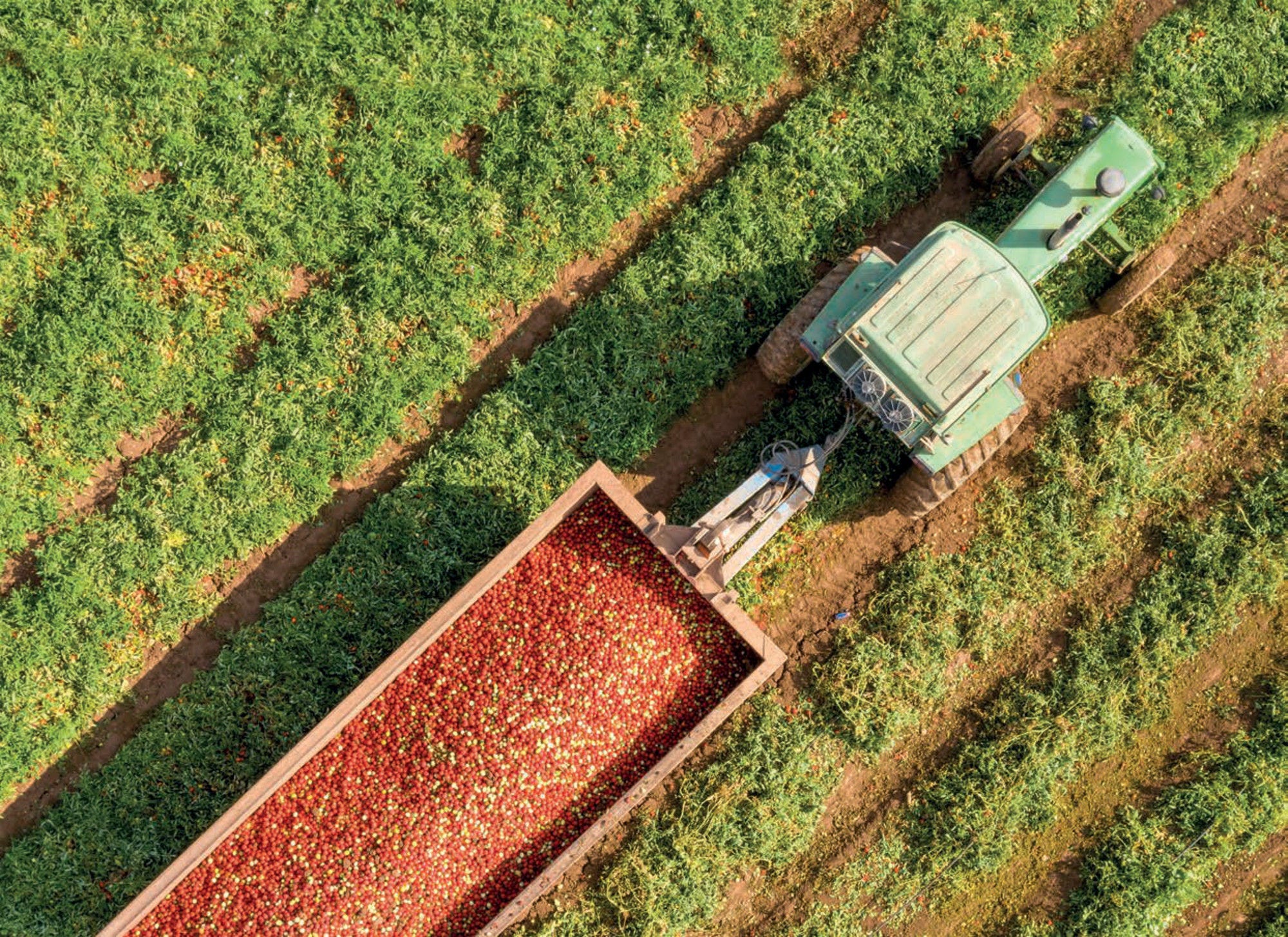In a 2017 referendum, the Swiss electorate adopted a new article on food security in the Swiss Constitution. It states that in order to guarantee the supply of food to the population, the Confederation shall create conditions for:
safeguarding the basis for agricultural production, and agricultural land in particular
food production adapted to local conditions and using natural resources efficiently
an agriculture and food sector that responds to market requirements
cross-border trade relations that contribute to the sustainable development of the agriculture and food sector
using food in a way that conserves natural resources.
The new article in the Federal Constitution calls to guarantee sufficient food supplies to the Swiss population in the long term based on both domestic production and imports, considering the entire value chain. Together with the constitution article on agriculture, the article on food security defines broad objectives for agricultural policy. Four-year frameworks then detail specific measures.
The most recent of these covers 2018-21 (PA 2018-21). Broadly speaking, this policy framework continues agricultural policies applied in 2014-17, though overall spending shrank by 1.7% in nominal terms.
Many agro-food imports to Switzerland are regulated by tariff rate quotas with relatively low in-quota tariffs and high out-of-quota tariffs. In particular, TRQs cover meat, milk products, potatoes, fruits, vegetables, bread cereals and wine. Since 1999, an auctioning system allocates some of the TRQs to traders. A notable exception to the quota system is feed grains, which are subject to single tariffs. These are adjusted according to the market to ensure that protection does not increase feed prices.
Preferential tariff rates apply unilaterally to imports from developing countries under the general system of preferences. In the context of the Swiss Government granting zero tariffs to all products from Least Developed Countries (LDCs), agricultural imports from LDCs (according to the official UN definition) are duty- and quota-free since September 2009.
Export subsidies for primary agricultural products were eliminated by 1 January 2010. The remaining export subsidies for some processed products were abolished as of 1 January 2019. Subsequently, additional payments to producers for commercial milk (Agriculture Act Art. 40) and grain (Agriculture Act Art. 55) were introduced.
Following the abolition of milk quotas in May 2009, the inter-branch organisation for milk, l’Interprofession du Lait (IP Lait), implemented standard milk delivery contracts for its members. These set different prices and volumes for milk delivery (contingents A, B and C). A decision of the Federal Council made these contracts compulsory for all milk producers including those outside IP Lait from 1 July 2013 to the end of 2021 (with potential to be extended). This means that the previous production quota system was de facto replaced by another production control mechanism on a private basis.
Switzerland’s network of trade agreements consists of the European Free Trade Association (EFTA) Convention, the Free Trade Agreement with the European Union and some 32 agreements concluded with 42 countries. All were signed within EFTA, with the exception of agreements with the People’s Republic of China, Japan and the Faroe Islands.
Spending to support agriculture consists of three broad financial envelopes. These are direct payments, production and marketing, and improving the production base combined with social measures.
Direct payments to farmers meet societal demands for such things as food security, environmental services (landscape, biodiversity, sustainable use of resources) and animal welfare. These payments link to environmental cross-compliance conditions.
Production and marketing expenditures mainly support dairy producers via three types of payments: (1) for milk delivered for cheese processing; (2) for milk production without silage feed; and (3) for commercial milk (introduced in 2019). In addition, area payments apply to oilseeds, protein crops, grain (introduced in 2019) and sugar beet. Some expenditures under this heading also provide funds for general services to the sector, including marketing and product promotion.
Policies to improve the production base and social measures include direct support to farm investments as well as general support for infrastructure improvement, social aid to farmers, and advisory services. These payments were provided within the PA 2014-17 policy framework, extended to 2021.
In the context of the UN Framework Convention on Climate Change, a key tool to achieve targets is the CO2 levy. This incentive tax is in place since 2008 for fossil fuels such as oil or natural gas. An Emission Trading System (ETS) facilitates emissions reduction where the costs of such reductions are low. Future ambitions are to link this ETS to the EU trading system so that Swiss companies can participate in the larger and more liquid EU emissions market, and benefit from the same competition conditions as EU companies. To this end, an agreement was signed with the EU on 23 November 2017. The Swiss parliament approved this agreement on 22 March 2019 and accepted the necessary changes to the current CO2 act. Current CO2 legislation only marginally affects the Swiss agricultural sector as the levy applies to fuels to heat greenhouses and barns for livestock. The current CO2 legislation does not address other climate-damaging emissions and in particular other emissions from agricultural production.







